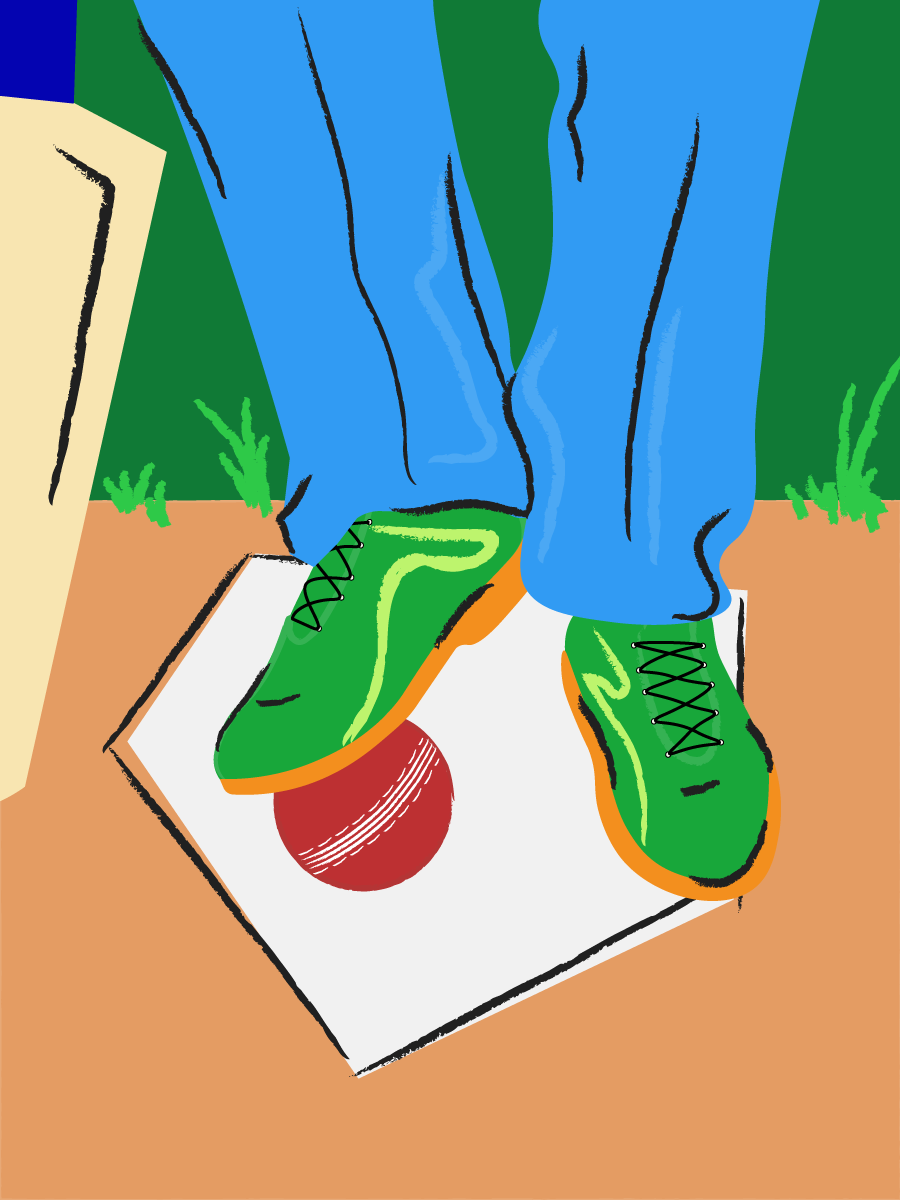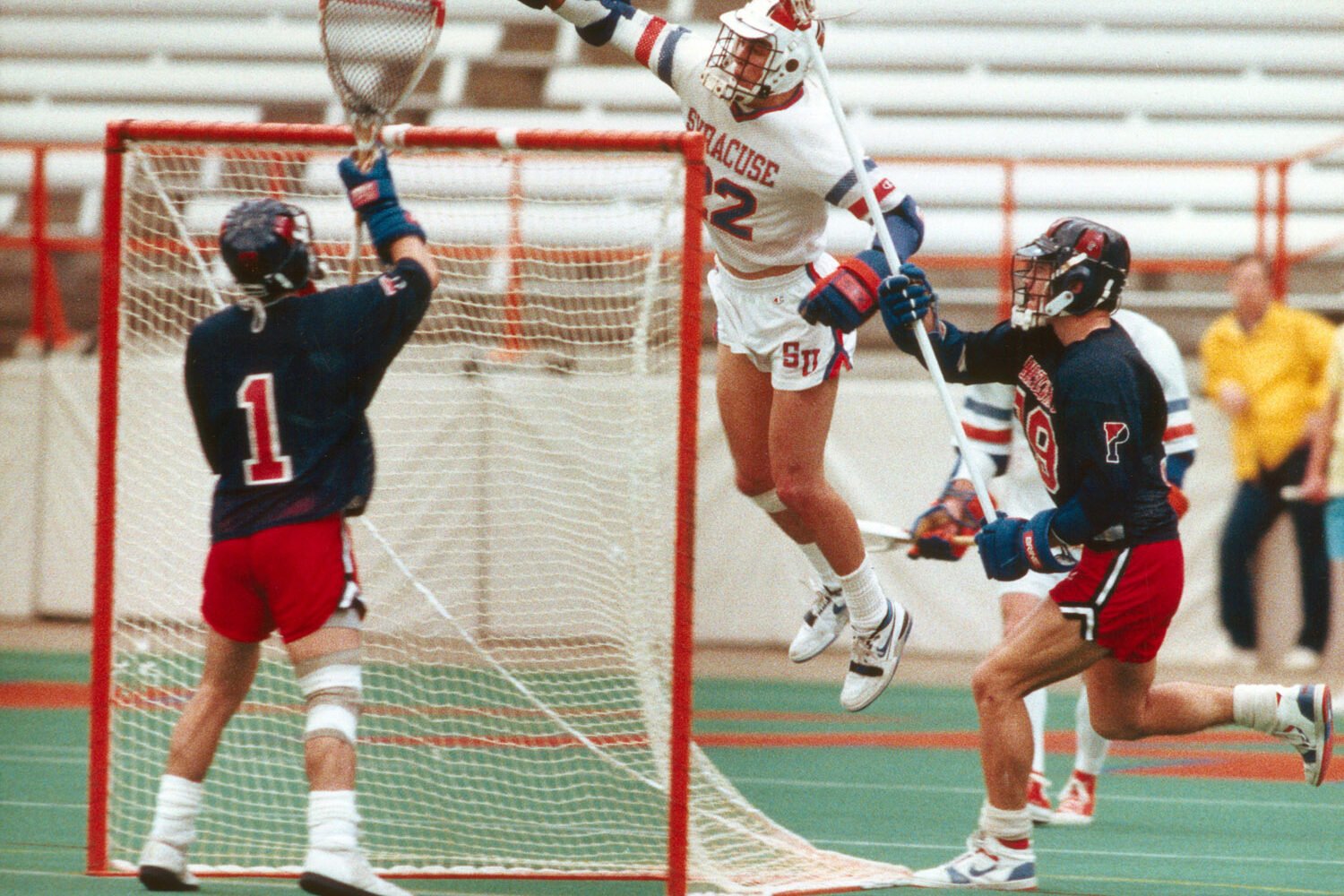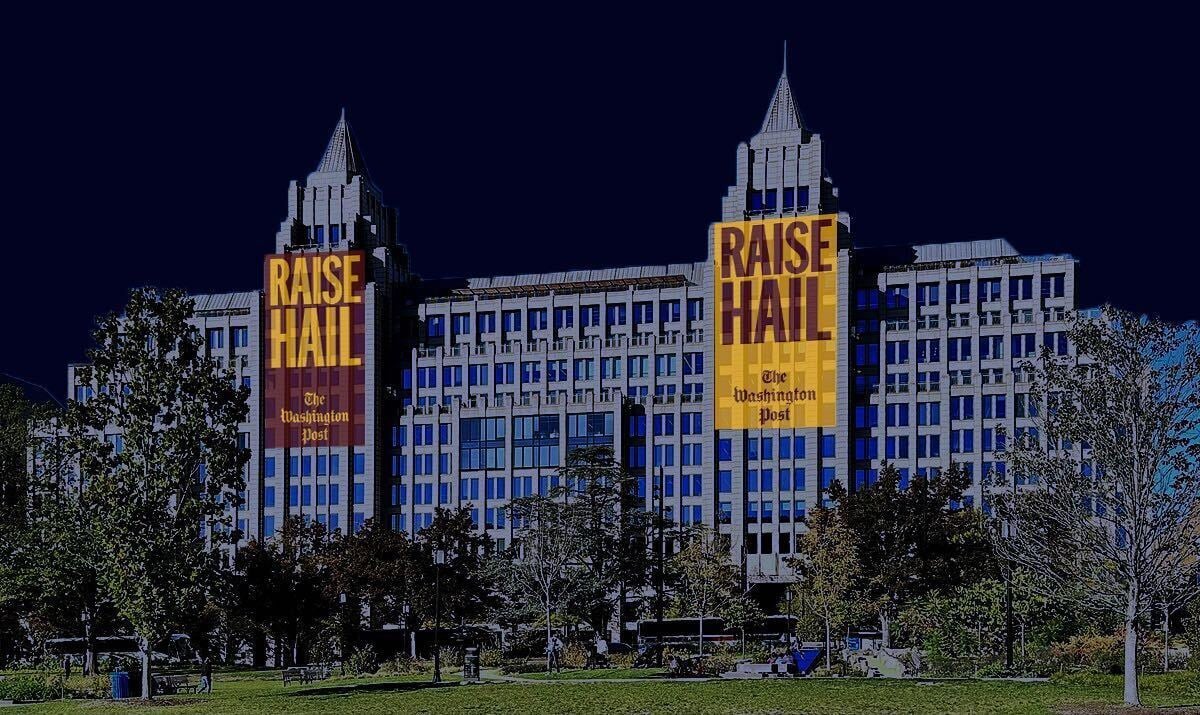Loudoun County is where Northern Virginia’s seemingly endless sprawl stops short. The county’s eastern half is a constellation of suburbs, toll roads, and Asian supermarkets, home to Dulles Airport and the tail end of Metro’s Silver Line. The western half, carefully guarded by preservationists, is a sleepy patchwork of horse farms, wineries, one-lane bridges, and stone farmhouses that predate the Civil War.
Just west of Route 15, the county’s suburban/rural dividing line, sits Mickie Gordon Park, a bucolic patch of Piedmont landscape with wild meadows and groves of oak and locust trees. Flanked by farms just outside the town of Middleburg, it’s relatively rugged with few amenities: a baseball diamond, a narrow gravel road, a few picnic tables, and some portable toilets.
At the center of what looks like a baseball outfield, however, there’s a strip of close-cut grass about as wide as a bowling alley: a cricket pitch. Hidden behind some towering oak trees is another. Home to large Indian and Pakistani communities, Loudoun is also the site of a growing number of cricket players. And if a Loudoun County Parks and Recreation renovation plan comes to fruition, the park could soon have three professional-grade cricket fields, with ballpark-style light towers, expanded parking lots, and a new entrance on Route 50.
But the plan has ignited fierce pushback—lawn signs, packed community meetings, opposition from Middleburg mayor Bridge Littleton and from multigenerational Black locals. It’s a conflict rooted in Loudoun’s suburban diversity, its history of racial segregation, and its suburban/rural divide.
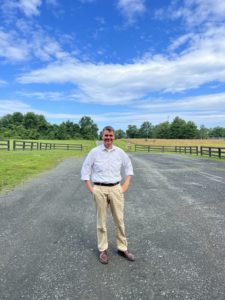
Littleton, an eighth-generation Loudoun resident, created the Save Mickie Gordon Park online petition, which calls on county officials to shelve the plan and find somewhere else for the league to play. He says the “vast majority” of cricketers live in a few eastern Loudoun planned communities with large South Asian populations. “It is not fair to them to make them drive 30 minutes to be able to have adequate facilities,” he says. “And it’s not fair to our community to completely change the nature, character, and amenities that are here.
“It would be like Middleburg coming together and saying, ‘We want a great new baseball diamond. Please build it in Sterling.’ It just doesn’t make sense.”
Meanwhile, members of the amateur Loudoun County Cricket League, mostly South Asian expats, say they urgently need more playing grounds. Vinod Motwani, a software engineer who captained the league’s first winning team, was frustrated by the not-in-my-backyard tone struck by a few of the Middleburg residents who protested the plan at a public meeting in June. Even though the opponents took pains to say they’re not singling out cricketers or South Asians—Middleburg has a history of fighting any new development—Motwani felt distinctly excluded.
“The one thing that hurt is when they said, ‘Keep eastern Loudoun out of western Loudoun,’ ” he says. “That really hurt. You want our taxes but you don’t want us?”
Everyone agrees the cricket league needs room to grow. Born in England and spread globally via colonization, the sport remains particularly popular in South Asia and the West Indies. In 2009, when the Indian and Pakistani communities in suburbs such as Ashburn and Brambleton reached critical mass, enthusiasts founded an amateur league with five teams. As Loudoun’s tech sector continued to expand, so did the number of South Asian expats with their cricket bats in tow. Today there are 60 teams—with 42 more on a waitlist—and more than 3,000 registered cricket players in Loudoun.
But the facilities haven’t kept up with demand. Most cricket fields are bigger than baseball fields, though the outfield can vary in size. Ideally, a pitch should be a strip of extremely short grass on sturdy, even ground. There are five such fields in all of Loudoun County, only two of which are used exclusively for cricket. The other three are hybrid soccer fields with jury-rigged pitches that are oriented east-west—not ideal, because the sun tends to blind the pitcher or the batter.
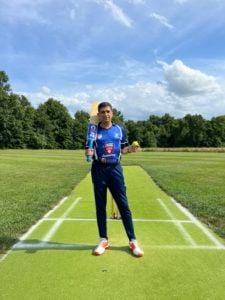
In an informal study, the Loudoun County Cricket League determined it would need upward of 22 cricket fields just to accommodate the existing demand from adult amateur cricketers and youth players, who often miss out because there isn’t enough space. If the league attracts new players, it might need even more new fields.
Motwani has always managed to find a place to play cricket. Growing up in Mumbai, he played with a tennis ball inside his house or in alleyways. Now a senior software engineer at Yahoo, he sometimes practices with his 18-year-old son in a closely mowed patch of their backyard in Ashburn. Motwani was part of one of the league’s foundational teams, the Lazy Lions, which coalesced at AOL’s now-shuttered Dulles campus when the company agreed to build a pitch. His pleas to the county parks department helped local cricketers secure the few fields they now have.
“What I told them was: Just look at the number of IT companies that are setting up here,” Motwani says. “I told them a lot of these guys are from South Asia, and they will want their cricket fields.”
Spurred by the league’s appeals for more space, Loudoun County Parks and Recreation began formulating the Mickie Gordon Park expansion in 2021. Because the park already had two small cricket fields, it seemed like a good place for an expansion. But when Middleburg locals—many of whom are quite plugged in to local land-use issues—caught wind of the idea this spring, they demanded the plan be put on hold and invited parks director Steve Torpy to hear their concerns.
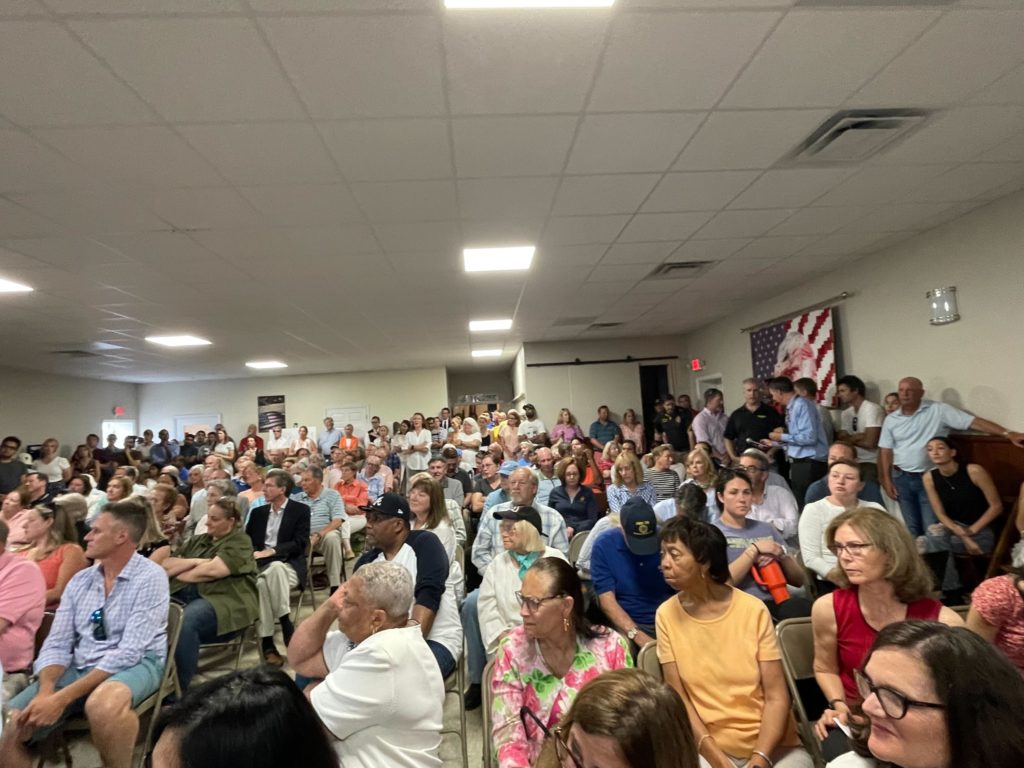
At a packed June 29 meeting at the American Legion hall, dozens of Middleburgers worried aloud about glare from new lights, added traffic during games, and paved parking spots taking over green space. Attendees also heard from Ollie Hall, a lifelong Black resident of Middleburg and distant relation to the man who once owned Mickie Gordon Park.
Though there isn’t much to commemorate it, the park and the adjacent hamlet called Macsville were among the most vital centers of Black life in segregation-era Loudoun County. Macsville was never more than a collection of ramshackle houses along Route 50—still named John Mosby Highway after the renegade Confederate colonel, but not for long, as the county board voted last year to return the name to Little River Turnpike.
What began as an assemblage of slave dwellings on the property of the McVeigh family of grain traders developed during Reconstruction into a free settlement with roadside shops. In the 1920s, William Hall, a prominent and successful Black stonemason, bought the large open property in Macsville that eventually became known as Hall’s Park—and ultimately, Mickie Gordon Park. For years, Hall’s property was a haven for Black locals who were barred from sports and recreation spaces around the county. Hall hosted horse races, marching-band events, and barbecue “Turn Out Days” on Memorial Day, the Fourth of July, and the first Friday in September. He let the kids, barred from swimming pools, swim in his pond.
The heart and soul of Hall’s Park was baseball. The home team was the Middleburg Braves, who dominated the informal Black baseball league in Loudoun. The man who gave the park its current name, Mickie Gordon, was a coach who ran the initially segregated Babe Ruth Little League team in Middleburg. (Gordon’s daughter, Debbie Schleith, says by the time her father coached Little League in the ’60s, the team included Black and white kids.)*
While the cricket expansion plan wouldn’t do away with the park’s remaining small baseball diamond, it has hit a historical nerve. Ollie Hall, who married a descendant of William Hall, has only foggy memories of Hall’s Park Turn Out Days. But she developed her own attachment to the park over the years—her sons played baseball and football there, and her daughter was a cheerleader at games. She has relatives who still live in Macsville, and some cousins had a reunion at Mickie Gordon Park last year.
Hall opposes the cricket plan and says she’d sooner see the park refurbished for baseball, perhaps with some new signage honoring the place’s history: a story of segregation, but also of Black celebration. “If the cricket fields went there, that all would be gone,” Hall says. “Middleburg is a loving community, and we want everybody to enjoy their time here. But at this point, we feel like we need to keep or improve on what we have, rather than a cricket field. The people in Middleburg would not enjoy that.”
Local preservation groups such as the Virginia Piedmont Heritage Area Association, which has worked hard to secure easements and ordinances that keep Middleburg in the 18th century—visually speaking—have joined the cricket opposition. “History is very important to people in this community,” Littleton says. “The whole story about Mickie Gordon Park, how it became an African American park because the county was segregated, it’s a great story. And wanting to preserve that story and be sure it’s told generations forward, through playing baseball, I think is very important.”
County parks spokesman Kraig Troxell says the “significant community input” led the department to take another look at its own plan. The necessary zoning changes will face review by the planning commission in September. In the meantime, locals will have two more chances to comment on the plan at community-input meetings, with the first taking place at the Middleburg Community Center on August 31.
The cricketers largely understand the town’s concerns about the park, though they argue some are misinformed. For one thing, the cricket league has already been playing at the park’s rudimentary, uneven existing pitches for more than a decade. The new plan would add one completely new field, improve the current ones, and create many parking spots, but it’s not conjuring a cricket facility out of thin air.
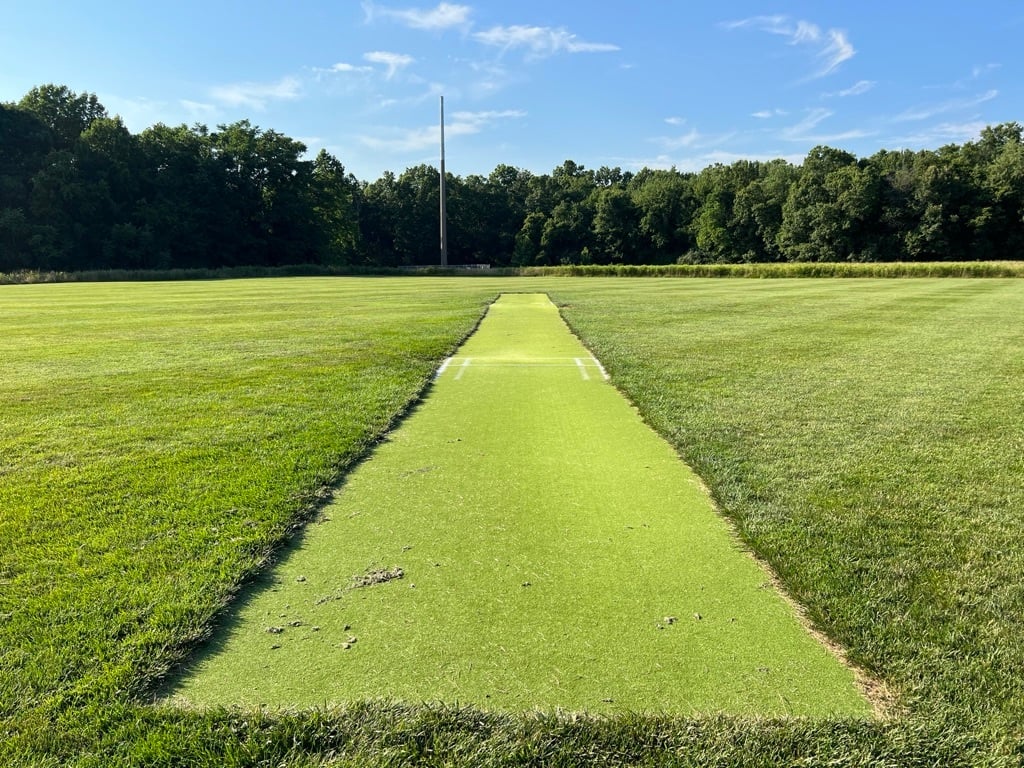
Motwani’s cricket buddy Kaushal Kansara, an engineering consultant who’s a member of the league’s committee, says hardcore cricket fans will find a way to play no matter where they are. As a kid in Gujarat, he played in the street, and as a student at Virginia Tech in the early 2000s, he played with friends on empty basketball courts. In the early days of the Loudoun league, he and his teammates rolled out mats on baseball fields in Brambleton and played in the backyard of an apartment building in Herndon.
Kansara loves rural culture and landscapes: He rides motorcycles with friends on Blue Ridge Mountain Road and lives on a wooded country lane outside Leesburg. “If you think of a rural area as milk, cricket could be the sugar,” he says. “You put it in and it’s going to be sweeter.”
He also points out that cricket need not be out of place in a historic Virginia setting. George Washington and his troops apparently played “wicket,” an American variant of the sport, at Valley Forge in 1778. The first international cricket match was an 1844 contest between the US and Canada—Canada won, if you’re keeping score—and Abraham Lincoln was in the stands at a Chicago-vs.-Milwaukee match in 1849.
Though cricket was subsequently eclipsed by baseball, its distant relative, it’s enjoying an immigration-fueled rebound, with a far-ranging American fan base. Duck into a Punjabi truck stop in the California desert, a Guyanese dance club in Queens, or a Bengali sweet shop in suburban Texas and you’ll see cricket on the flat-screen—likely the Indian Premier League, whose streaming games have been known to attract more than 30 million viewers at a time. Major League Cricket, the country’s first domestic pro league, launched in July, and several cities are scrambling to build stadiums that can accommodate large crowds. By 2025, DC’s new team, the Washington Freedom, will play at a planned hybrid cricket/baseball stadium on the campus of George Mason University.
Like many Indian American cricketers, Kansara hopes the sport will win over new American fans. He thinks the new fields in Loudoun are necessary not only for the already enthusiastic South Asian community but also for new converts. In suburban Maryland, where fields are more numerous, the youth leagues are bigger, and more kids from nonimmigrant backgrounds are playing. Maybe, Kansara says, young Virginians whose grandparents and great-grandparents played baseball in rural Loudoun towns could be just as enthused about cricket if they had the opportunity to play. When baseball players try the sport, he adds, they frequently turn out to be great cricketers.
“When we’re playing, they sometimes stand here and watch, but they never attempt to play because there’s no place to play,” Kansara says. “This country adopts new things very quickly if they like something.” He then recites the famous line from the baseball movie Field of Dreams, which seems to mirror the story of the cricket league’s efforts: “If you build it, they will come.”
*This article has been edited, since its original posting, to clarify the makeup of Mickie Gordon’s team.
